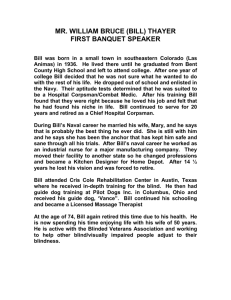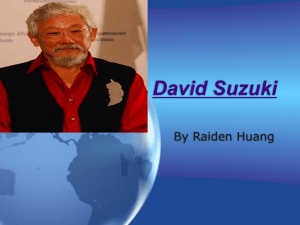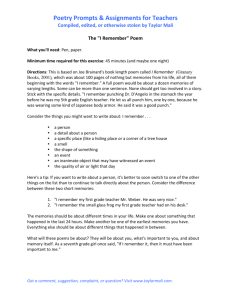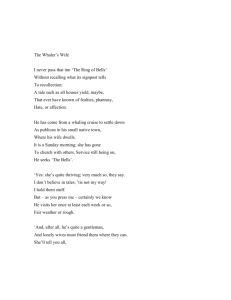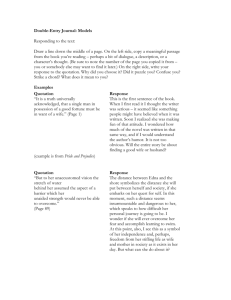This moment forever
advertisement
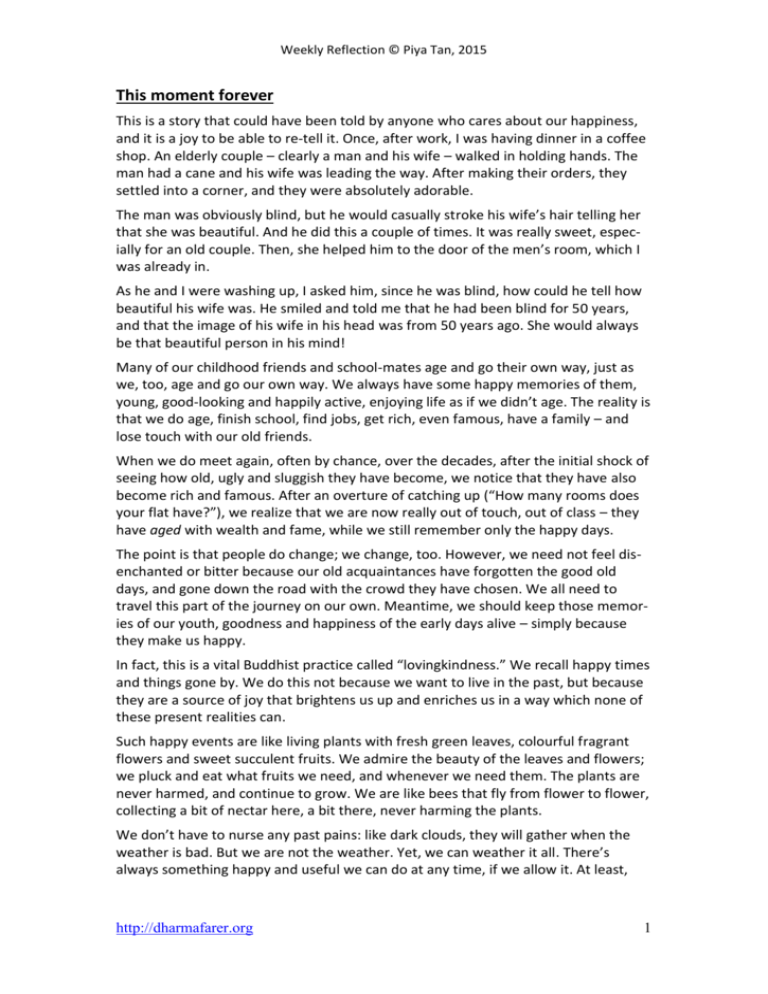
Weekly Reflection © Piya Tan, 2015 This moment forever This is a story that could have been told by anyone who cares about our happiness, and it is a joy to be able to re-tell it. Once, after work, I was having dinner in a coffee shop. An elderly couple – clearly a man and his wife – walked in holding hands. The man had a cane and his wife was leading the way. After making their orders, they settled into a corner, and they were absolutely adorable. The man was obviously blind, but he would casually stroke his wife’s hair telling her that she was beautiful. And he did this a couple of times. It was really sweet, especially for an old couple. Then, she helped him to the door of the men’s room, which I was already in. As he and I were washing up, I asked him, since he was blind, how could he tell how beautiful his wife was. He smiled and told me that he had been blind for 50 years, and that the image of his wife in his head was from 50 years ago. She would always be that beautiful person in his mind! Many of our childhood friends and school-mates age and go their own way, just as we, too, age and go our own way. We always have some happy memories of them, young, good-looking and happily active, enjoying life as if we didn’t age. The reality is that we do age, finish school, find jobs, get rich, even famous, have a family – and lose touch with our old friends. When we do meet again, often by chance, over the decades, after the initial shock of seeing how old, ugly and sluggish they have become, we notice that they have also become rich and famous. After an overture of catching up (“How many rooms does your flat have?”), we realize that we are now really out of touch, out of class – they have aged with wealth and fame, while we still remember only the happy days. The point is that people do change; we change, too. However, we need not feel disenchanted or bitter because our old acquaintances have forgotten the good old days, and gone down the road with the crowd they have chosen. We all need to travel this part of the journey on our own. Meantime, we should keep those memories of our youth, goodness and happiness of the early days alive – simply because they make us happy. In fact, this is a vital Buddhist practice called “lovingkindness.” We recall happy times and things gone by. We do this not because we want to live in the past, but because they are a source of joy that brightens us up and enriches us in a way which none of these present realities can. Such happy events are like living plants with fresh green leaves, colourful fragrant flowers and sweet succulent fruits. We admire the beauty of the leaves and flowers; we pluck and eat what fruits we need, and whenever we need them. The plants are never harmed, and continue to grow. We are like bees that fly from flower to flower, collecting a bit of nectar here, a bit there, never harming the plants. We don’t have to nurse any past pains: like dark clouds, they will gather when the weather is bad. But we are not the weather. Yet, we can weather it all. There’s always something happy and useful we can do at any time, if we allow it. At least, http://dharmafarer.org 1 This moment forever by Piya Tan during such moments, there’s something we can learn from our actions or nonactions which were sad or useless. People see what they want to see. We tend to see this as a rather negative saying. Seen in a positive way, however, it means that we can have control over our life, indeed, even our destiny. We should see what we want to see. Surely, we want to see joy and good. Taking a healthy control of our life means that we should not feed the vicious demons of unhappiness and pain. We should instead feed the angels of joyful and good memories. Our memories are, after all, a constructed vision, like a multi-channel TV. All we need to do is to keep the remote in our hands and choose the channels that we enjoy watching – those that entertain and educate us, and leave us happier and livelier than before. Such great moments can open up to us at any time, if we are ready. My wife, Ratna, and I have worked together as Dharma workers for over 30 years, and we’re in the evening of our lives. We still work very hard in the day, giving classes or counselling, and working online, translating suttas, reading – and doing our household chores. Ratna often goes to bed earlier, as she works harder (she works in the kitchen and does all the paperwork and legwork, too). Sometimes, I try to be with her just before she falls asleep. If she’s still awake, I might tell her a funny story and she would fall asleep laughing. More often, she would be too sleepy to respond to what I am saying. Occasionally, I would whisper some happy memories to her, and she would smile. I remember how she once smiled and said, “When I’m 80, and think about my life and what it was like to be younger, and to be with you, I want to remember this moment.” Moments later, she was asleep. The room was peaceful, almost silent. All I could hear was the soft purr of her breath, like those of our two cats sleeping on the bunk above us. For a moment, I stayed awake thinking about the decades we’ve spent together, and all our choices that made this moment possible. At that moment, I realize that it doesn’t matter what we have done or how simple our lives are. In that moment, even the future does not matter. All that matters is the peace and joy before us. Such a wonderful moment should never be forgotten. So I got up and went into my study, and started writing this reflection. Happy Vesak. R398 Simple Joys 276 Piya Tan ©2015 2 http://dharmafarer.org
